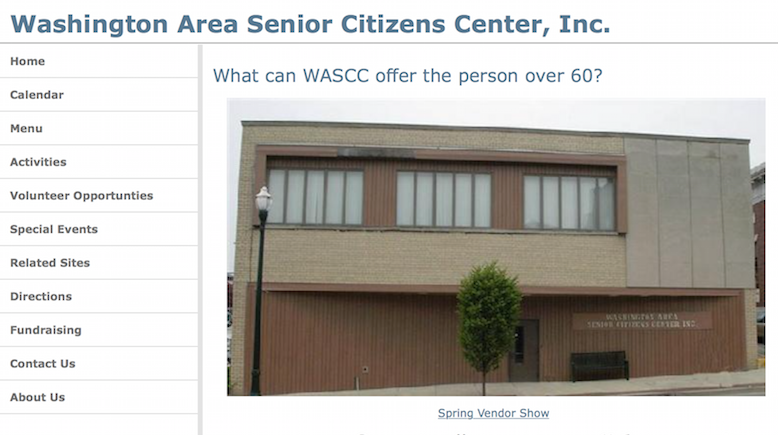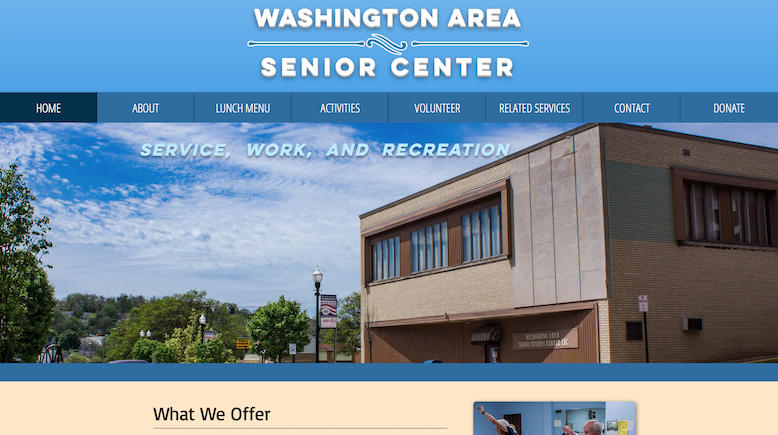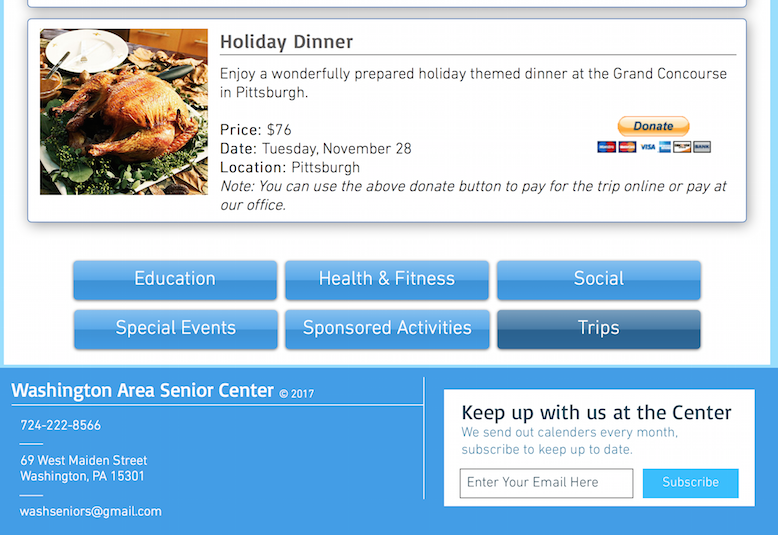In spring 2017, one of our clients was the Washington, PA, senior center. This is not a residential facility--rather, a community center where seniors can socialize, get nutritious lunches, participate in health and wellness activities, and get assistance with everything from filing their taxes to signing up for Meals on Wheels.
Here's a screen capture of the center's website at the time students first began talking to the director of the center:
 Washington Area Senior Center previous website.
Washington Area Senior Center previous website.
And here's an above-the-fold view of the new site that the students came up with:
 Washington Area Senior Center new website (2017).
Washington Area Senior Center new website (2017).
If you visit the site, you'll see that the home page now emphasizes center offerings for seniors: a calendar of events, easy links to the lunch menu, a list of outings to sign up for. Also, items the center was interested in promoting, such as ways to volunteer.
But learning about the website project led to discussions about other I.T. needs at the center. A way to share documents such as the appointment calendar for tax assistance (the students introduced Google calendars for this). A way to manage Meals on Wheels delivery schedules more effectively (the students developed electronic documents to replace paper records). A way to take donations for trips and other activities online (the students implemented PayPal, as seen below). Often, improvements to work flow and, ultimately, service to the community were as simple as a redesigned form or a clearer website navigation system.
 Washington Area Senior Center can now take donations through PayPal.
Washington Area Senior Center can now take donations through PayPal.
Of course, there's lots more to the project, and the website, than I mention here. And all of this is designed to help students learn principles of project management. Service-learning is always an effort to teach academic content through service to the community. Computing and Information Studies at W&J College accomplishes this through partnerships with local nonprofit organizations, which are always in need of I.T., and other, assistance.
Header image taken by 2017 CIS graduate, Adrian Elizondo.